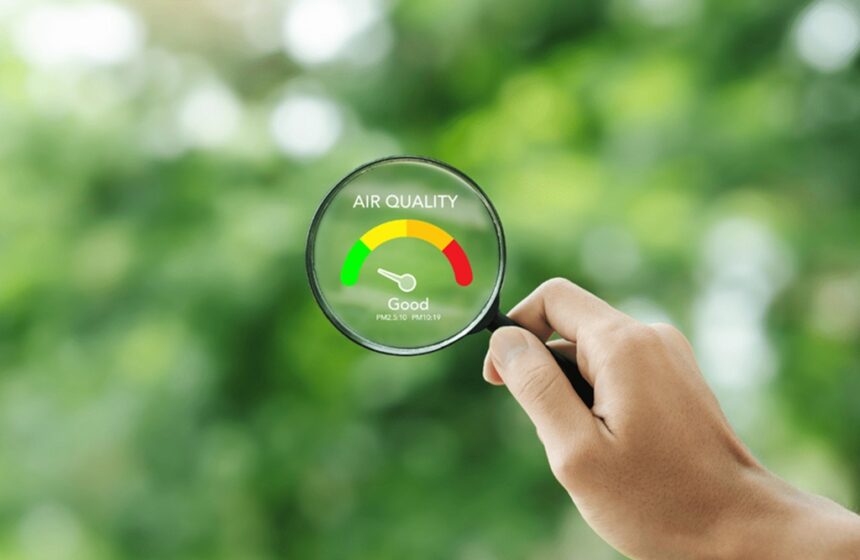Air pollution is becoming one of the most monitored topics in planning. As more people become ill and the law tightens up, Air Quality Assessments (AQAs) are increasingly being employed to aid planning applications, particularly where traffic, emissions, or current pollution is the case.
Planners at a local level make it compulsory for developers to demonstrate how their proposals will mitigate risks to air quality. Getting it first time not only increases the likelihood of consent but also avoids expensive re-designs down the line.
What is an Air Quality Assessment?
An Air Quality Assessment looks at how a proposed development will impact local air quality or how local air quality will impact future site users. It takes into account sources of pollution, estimates likely emissions, and suggests techniques for minimizing harm where it is necessary.
1. When Is an Air Quality Assessment Required?
Planning authorities typically request an AQA if a development:
- Is in or adjacent to an Air Quality Management Area (AQMA)
- Concerns major-scale residential, retail or industrial proposals
- Introduces a lot of vehicle traffic or employs high-energy techniques
- It is situated near schools, hospitals or homes (sensitive users)
- Triggers local planning policy or is listed for screening
Early guidance from the council or planning consultant will determine whether or not one will be necessary.
2. What Does an Air Quality Assessment Include?
Most AQAs are in process:
Baseline Review: Employs monitoring and background data to evaluate current-day pollution levels locally.
Emission Forecasting: Forecasts vehicle movement pollution, energy consumption, and site activity pollution.
Modelling: Forecasts how the development will alter local air quality when built and used.
Impact Assessment: Compares forecasts with national and local air quality objectives in order to ascertain significance.
Mitigation: Proposes reasonable means of decreasing or averting undesirable effects—e.g., design, layout or material adjustments.
Reporting: Report for written submission to go with the planning application, including methodology, results and findings.
3. Legal and Planning Requirements
Air Quality Assessments have to satisfy a variety of legal and policy requirements, such as:
- The Environment Act 1995 and Clean Air Strategy
- National Planning Policy Framework (NPPF)
- Local authority planning policy and AQMA action plans
- Air Quality Standards Regulations, derived from EU legislation that still has effect
If these are not met adequately, planners will request further information, delay granting permission, or deny permission.
4. Who Conducts an AQA?
AQAs need to be conducted by experienced environmental consultants with air quality modelling and planning policy expertise. They employ approved software (e.g. ADMS or Breeze) and utilize guidance of best practice to generate acceptably good and reliable results for local planning officers.
5. Why Early Assessment Is Important
Procrastinating too long to teach an AQA puts a greater risk of delay in planning.
Early start:
- Flags up early risks before submission
- Gives scope for establishing effective mitigation
- Avoids final-hour objections
- Increases overall ease of planning
This would be particularly relevant to town-centre or traffic-choked sites.
6. Standard Mitigation Strategies
Once risks are identified, developers can be required:
- To install electric vehicle (EV) charging points
- To promote walking, cycling and public transport
- Create green space, green roofs or tree planting
- Relocate living areas or entrances from pollution sources
- Control dust and emissions on site
These may usually be incorporated within the scheme without fundamental redesign, if planned ahead of time.
7. How AQAs Assist Sustainable Development
Air Quality Assessments aren’t compliance- they’re responsible development. They decrease exposure to pollution, assist vulnerable groups, and drive schemes towards cleaner technology.
They also enable broader policy objectives for carbon savings, climate change, and health, both of which are increasingly important to planning success.
Final Word
Air Quality Assessments are a part of planning now, particularly in urban or busy areas. They provide councils with the data they require to evaluate environmental risk, and assist developers in providing evidence that plans are safe, but also visionary.
Getting an AQA prevents delays, enhances public trust, and minimizes long-term risk. It’s an easy but essential step to creating developments that function, not only on paper, but for the individuals who will work and reside in them. Contact Planning consultants for more information.
Related News:
Air Pollution Levels Dangerous to Health in 58 Provinces Across Thailand














